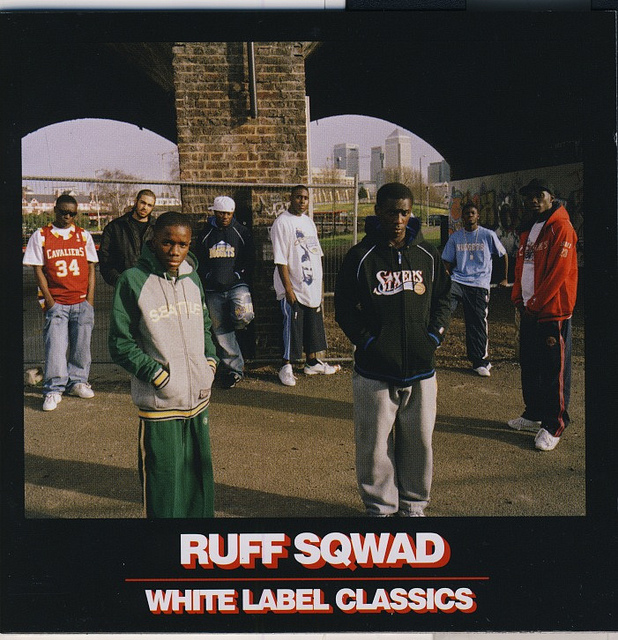From the perspective of a listener based outside of the U.K., grime--the British style of rapping over beats that is most decidedly not U.K. hip-hop--has always been a difficult scene to keep on top of. Situated in the economic, geographic, and legal periphery of British music, the genre's beating heart was a frantic welter of limited edition releases, pirate radio shows, clubs, and mixtapes that circulated with intimidating speed. Official releases were (and continue to be) rare, with best output of many of the genre's most respected names scattered across dozens singles or compilations, almost impossible to track down unless you already knew what you were looking for. Occasionally, a graspable document would arrive- Dizzee Rascal's first album, for example, or a Wiley compilation- to remind listeners that something startling was brewing out there. But apart from a scattered handful of breakout (or semi, almost breakout) artists, the music's full, unexpurgated vitality has remained remote from most international ears.
The release of White Label Classics, a collection of grime instrumentals from the pioneering crew Ruff Sqwad, does something to correct this problem. The tracks, recorded during the early 2000s, when most members of the crew were still in high school, were originally released as "white labels"- limited-edition vinyl pressed for tastemaking DJs and radio MCs. So, while these tracks have been circulating on YouTube (and as low quality MP3s) since their release, this is the first chance that most fans have to own them in anything resembling their original fidelity.
And the music definitely rewards it. The album's 22 tracks display a startling level of invention, making the compilation compulsively listenable as a whole, and definitively put the lie to any notions of single "grime" sound. Tracks like "Move to Dis" or "Burial" rumble by the listener with intimidating force, the distorted bass lines meshing with the tinny drums and (at least in the case of "Burial") an almost shockingly melodic smear of keyboards. For all their claustrophobic density, the producers still manage to let the tracks breathe- pulling from the dub influence that is a subterranean presence in so much British electronic music, they create a sense of space through pauses and drop-outs, constantly changing the mix between the track's various elements. It's truly seductive grind for those into the more bombastic side of the spectrum, all the head-nodding mid-tempo groove of U.S. rap, but without any boredom inducing stasis in the beat. Rhythms are established and then disrupted, returning with a bang only to be messed with all over again.
This style of tracks, although often excellent, would almost certainly become exhausting after an entire instrumental album. Happily, they never get the chance. The album's hard-edged bluster is interspersed with interludes of unabashed electronic beauty. Cuts like "Functions on the Low" or "Dying in Your Arms" reflect the crew's genuine melodic gifts, pulling bits and pieces of the past (a chipmunked house-sample, a cheesy synth tone) and recombining them into a mosaic of new. It's an impressive ability, and one that hangs over the entire album, an audible spirit of discover that has kept these tracks fresh despite the years since their release. Grime was a vital music for determining the shapes assumed by the various strands of British electronic music that have gone worldwide over the past couple of years, and this compilation- by refusing to focus on the MCs who usually received the spotlight during this period- allows the listener to focus on the production developments that would later prove so influential. A historical document and a banger? What more could you ask for?








